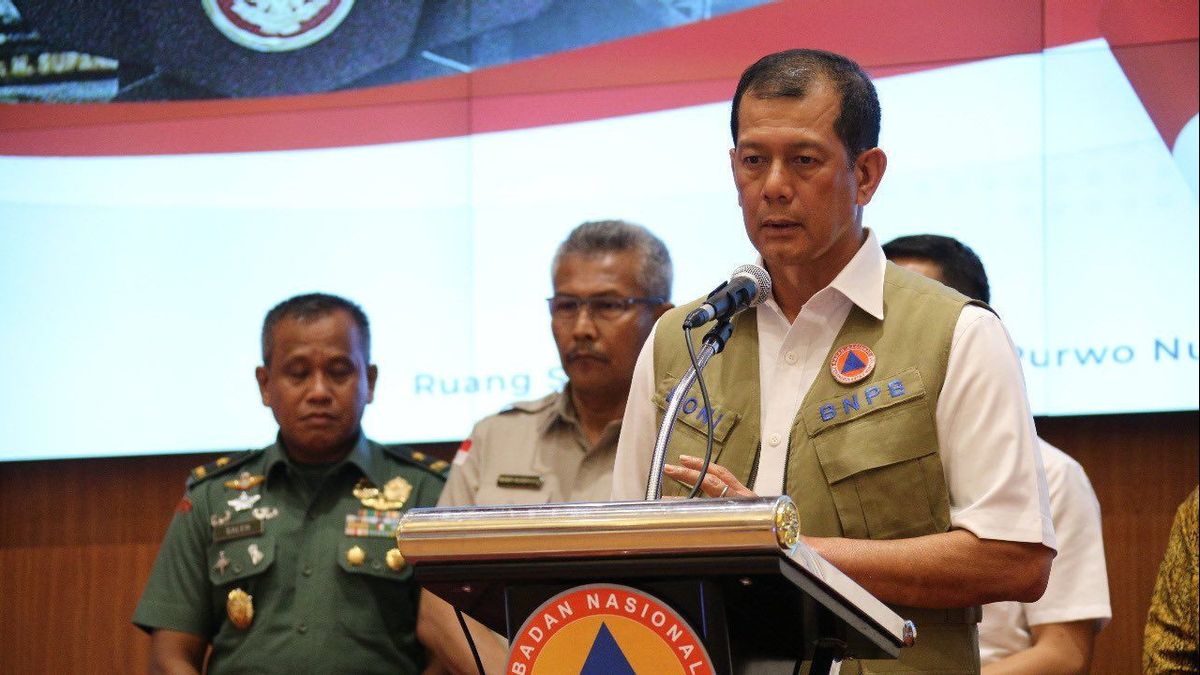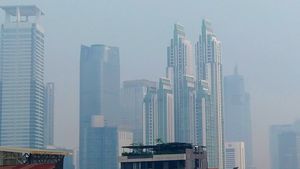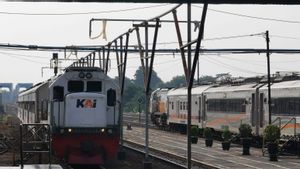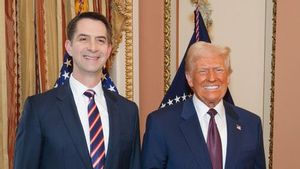JAKARTA - Through the National Disaster Management Agency (BNPB), the government has decided to extend the emergency period for the COVID-19 disease outbreak until May 29.
This was decided after the Head of BNPB Doni Monardo signed the Decree of the Head of the National Disaster Management Agency Number 13A of 2020 concerning the Extension of the Status of Certain Disaster Emergency Conditions for Corona Virus Outbreaks in Indonesia.
"The extension of the Status of Certain Conditions as referred to in the first dictum is valid for 91 (ninety one) days, starting from February 29, 2020 to May 29, 2020," said the letter as quoted by VOI on Tuesday, March 17.
Although it is only circulating now, this letter has been signed since last February 29. In addition to stipulating an extension of the emergency status for 91 days until May 29, this letter also states that all costs incurred will be borne by the Ready-to-Use Fund in BNPB.
It is known, even though Indonesia is currently in a state of disaster emergency due to the COVID-19 outbreak, the government has not yet decided to lockdown or quarantine the area to prevent the spread of the virus.
President Joko Widodo said there was no lockdown in Indonesia twice at the Bogor Presidential Palace, West Java some time ago.
At that time, although some of the public urged a lockdown to prevent the spread of the virus originating from the city of Wuhan, China, President Jokowi did not agree to take this option.
At that time, Jokowi did say that there were several countries that had locked down, but some were not. Countries that are in lockdown, of course, have consequences that they must accept. Meanwhile, countries that do not do so are required to carry out precise and targeted policies.
As an alternative to the lockdown, Jokowi gave permission for each regional leader to determine the level of emergency for the spread of COVID-19 and was allowed to determine the emergency alert status or emergency response for non-natural disasters after coordinating with BNPB.
In addition, Jokowi also asked residents not to panic and remain productive while remaining alert to the spread of the virus by limiting movement.
"With this condition, it is time for us to work from home, learn from home, worship from home. This is the time to work together, help each other and unite, mutual cooperation. We want this to become a community movement so that the COVID-19 problem can be handled properly. the maximum, "said Jokowi in his statement at the Bogor Presidential Palace, West Java, Sunday, March 15.
Meanwhile, the day after, even though he allowed the local government to set the level of emergency, President Jokowi prohibited local governments from implementing a lockdown. According to the former Governor of DKI Jakarta, the lockdown policy can only be taken by the central government, not the regions.
"The lockdown policy, both at the national and regional levels, is the policy of the central government. This policy cannot be taken by the regional government, and we do not think of a lockdown policy," said Jokowi in his statement on Monday, March 16.
Jokowi added that local governments do not arbitrarily take information and continue to communicate with relevant ministries and the COVID-19 task force before making decisions in their regions.
"All major policies at the regional level related to COVID-19 must first be discussed with the central government," he said.
Rather than a lockdown, Jokowi said the most important thing was to reduce the mobility of the people from one place to another.
In addition, people are also asked to maintain distance and reduce crowds that are at risk of spreading the virus.
"The policy of studying from home, working from home, and praying at home needs to continue for us to intensify to reduce the level of the spread of COVID-19 while still prioritizing services to the community. Be it matters of basic needs, health services and other public services," he said.
Furthermore, Jokowi ordered the central and regional governments to prepare good public transportation and keep these modes of transportation clean.
Not only that, public transportation service providers are also expected to be able to find ways to reduce crowd levels, queue levels, and congestion in public transportation so that people can maintain a safe distance.
The English, Chinese, Japanese, Arabic, and French versions are automatically generated by the AI. So there may still be inaccuracies in translating, please always see Indonesian as our main language. (system supported by DigitalSiber.id)









